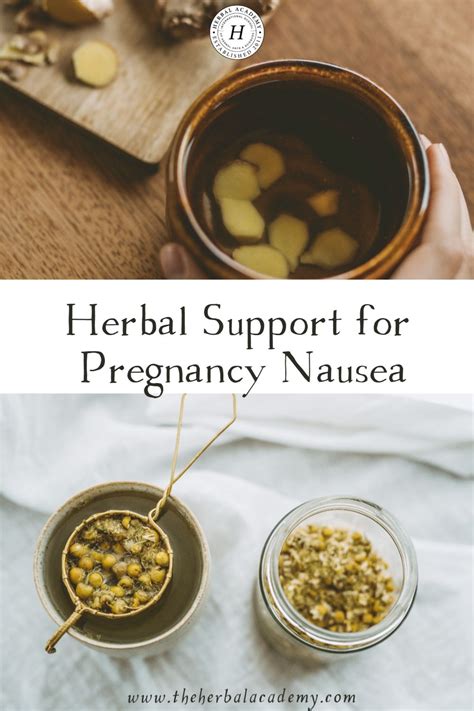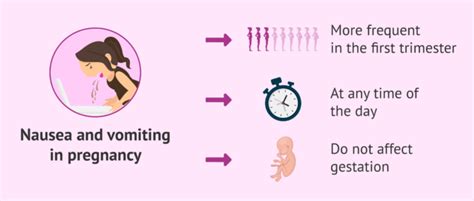Intro
Discover natural remedies to relieve pregnancy nausea, including dietary changes, herbal teas, and acupressure, to alleviate morning sickness symptoms and promote a healthy pregnancy, using holistic approaches like ginger and vitamin B6.
Pregnancy is a life-changing experience that brings immense joy to expecting mothers. However, it can also come with its fair share of challenges, one of which is pregnancy nausea. Also known as morning sickness, this condition can be quite debilitating, affecting a woman's daily life and overall well-being. While it's common to experience some level of nausea during pregnancy, there are natural ways to relieve it. In this article, we will delve into the world of natural remedies and explore the various options available to alleviate pregnancy nausea.
Pregnancy nausea is a common symptom that affects up to 85% of pregnant women. It's characterized by feelings of queasiness, vomiting, and dizziness, which can be triggered by various factors such as hormonal changes, sensitivity to smells, and fatigue. While the exact cause of pregnancy nausea is still unknown, research suggests that it's linked to the rapid increase in hormone levels, particularly human chorionic gonadotropin (hCG). Understanding the underlying causes of pregnancy nausea is crucial in finding effective natural remedies to manage it.
The importance of finding natural remedies for pregnancy nausea cannot be overstated. Not only do these remedies provide a safer alternative to medication, but they also promote a healthier lifestyle and overall well-being. By incorporating natural remedies into their daily routine, pregnant women can reduce their symptoms, boost their energy levels, and enjoy a more comfortable pregnancy experience. Moreover, natural remedies can be used in conjunction with medical treatment, providing a more holistic approach to managing pregnancy nausea.
Understanding Pregnancy Nausea

Causes of Pregnancy Nausea
Pregnancy nausea is a complex condition that's influenced by multiple factors. Some of the key causes of pregnancy nausea include: * Hormonal changes: The rapid increase in hCG and estrogen levels can contribute to nausea and vomiting. * Sensitivity to smells: Strong odors can trigger nausea and vomiting in pregnant women. * Fatigue: Physical and emotional exhaustion can exacerbate pregnancy nausea. * Digestive changes: The slowing down of digestion can cause nausea and vomiting. * Stress and anxiety: High levels of stress and anxiety can worsen pregnancy nausea.Natural Remedies for Pregnancy Nausea

DIY Remedies for Pregnancy Nausea
In addition to the natural remedies mentioned above, there are several DIY remedies that can help alleviate pregnancy nausea. These remedies are easy to make and use, and they can be customized to suit individual needs. Some popular DIY remedies for pregnancy nausea include: * Ginger tea: Steep fresh ginger in hot water to make a soothing tea that can help reduce nausea. * Peppermint oil spray: Mix peppermint oil with water and spray it on the wrists or behind the ears to help calm the stomach. * Vitamin B6 smoothie: Blend vitamin B6 supplements with yogurt and fruit to make a delicious and nutritious smoothie that can help alleviate morning sickness.Lifestyle Changes for Managing Pregnancy Nausea

Exercise and Pregnancy Nausea
Exercise is an essential part of a healthy pregnancy, and it can also help alleviate pregnancy nausea. Gentle exercises such as walking, swimming, and prenatal yoga can help reduce symptoms and improve overall well-being. However, it's essential to listen to the body and avoid overexertion, which can worsen pregnancy nausea. Some tips for exercising with pregnancy nausea include: * Starting slowly: Begin with short, gentle exercises and gradually increase intensity and duration. * Avoiding trigger activities: Identify activities that trigger nausea and avoid them. * Staying hydrated: Drink plenty of water before, during, and after exercise to prevent dehydration. * Listening to the body: Rest when needed and avoid pushing the body too hard.Nutrition and Pregnancy Nausea

Supplements and Pregnancy Nausea
In addition to a balanced diet, supplements can also play a role in managing pregnancy nausea. Some supplements that can help alleviate symptoms include: * Vitamin B6: Vitamin B6 supplements can help reduce morning sickness. * Magnesium: Magnesium can help reduce nausea and vomiting. * Ginger supplements: Ginger supplements can help reduce nausea and inflammation. * Probiotics: Probiotics can help maintain a healthy gut microbiome and reduce nausea.Managing Pregnancy Nausea at Work

Support Systems for Pregnancy Nausea
Having a support system in place can make a significant difference in managing pregnancy nausea. Support from family, friends, and healthcare providers can help women cope with their symptoms and improve their overall well-being. Some ways to build a support system for pregnancy nausea include: * Joining a support group: Joining a support group can connect women with others who are experiencing similar symptoms. * Talking to a therapist: Talking to a therapist can help women cope with the emotional aspects of pregnancy nausea. * Informing partners and family members: Informing partners and family members about pregnancy nausea can help them understand and provide support. * Building a network of friends: Building a network of friends who can provide emotional support and help with daily tasks can make a significant difference.Conclusion and Next Steps

We invite you to share your experiences and tips for managing pregnancy nausea in the comments below. Your input can help others who are going through similar challenges, and we appreciate your contribution to our community. If you found this article helpful, please share it with your friends and family, and don't forget to follow us for more informative and engaging content.
What are the most common symptoms of pregnancy nausea?
+The most common symptoms of pregnancy nausea include nausea, vomiting, dizziness, and sensitivity to smells.
How can I manage pregnancy nausea at work?
+Managing pregnancy nausea at work can be challenging, but there are several strategies that can help, such as taking regular breaks, staying hydrated, avoiding trigger foods, and communicating with colleagues and managers.
Are there any natural remedies that can help alleviate pregnancy nausea?
+Yes, there are many natural remedies that can help alleviate pregnancy nausea, such as ginger, peppermint, vitamin B6, and acupuncture.
Can exercise help reduce pregnancy nausea?
+Yes, gentle exercise such as walking, swimming, and prenatal yoga can help reduce pregnancy nausea.
How can I build a support system for pregnancy nausea?
+Building a support system for pregnancy nausea can involve joining a support group, talking to a therapist, informing partners and family members, and building a network of friends.
